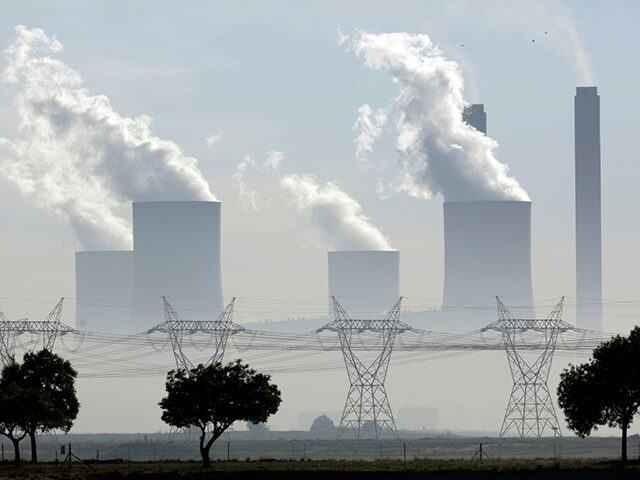Three senior South African government officials told Reuters on Thursday that South Africa will miss its climate change targets under the Paris Agreement because shutting down the country’s eight coal-fired power plants would cause a massive energy crisis.
South Africa’s big miss is no small matter for the climate change movement because, as Reuters pointed out, it is “the world’s 11th biggest greenhouse gas emitter and has one of the world’s highest per capita emissions.”
The original plan called for South Africa to shut down six of its coal-fired power plants by 2030 and two more by 2034. The officials who spoke to Reuters said those goals are now considered “unrealistic,” although the government might set a “new decommissioning target for 2035.”
The South African environmental ministry issued a statement saying it was “too early” to conclude the Paris Agreement targets for 2030 cannot be met.
South Africa is already in the midst of a major energy crisis, even with all those coal plants puffing away. The World Bank announced in mid-October that talks were underway for a billion-dollar loan to help South Africa recover from rolling blackouts that have put a major crimp on economic growth.
The World Bank already loaned South Africa’s state utility company, Eskom, $497 million in 2022 to decommission one of its coal power plants. The plant, an aging facility located near the city of Komati east of Johannesburg, was shuttered last October, but the “transition to cleaner energy” was a disaster.
The South African government did not consult with the 1,600 local workers employed by the Komati plant or help them find new jobs. Energy officials fretted the loss of the plant would jeopardize the power grid, sowing panic, confusion, and vain hopes the Komati plant might reopen.
Eskom estimates that roughly 80 percent of South Africa’s power comes from its coal-fired plants, which are becoming unreliable due to mismanagement and corruption. Instead of “transitioning” to green energy, South Africa is leaning on its coal plants harder than ever as it experiences the worst blackouts in its history.
The South African government has said it would need about $80 billion to finance a proper transition to green energy, a sum that seems very unlikely to be forthcoming.
The United Nations published a report on Wednesday that said governments around the world planned to exceed the Paris Agreement’s limits on fossil fuels by over 110 percent by 2030. Meeting the Paris Agreement limits would require the almost total worldwide shutdown of coal power plants by 2040 – but the heaviest coal users, China and India, are still increasing their coal-fired generator capacity.

COMMENTS
Please let us know if you're having issues with commenting.